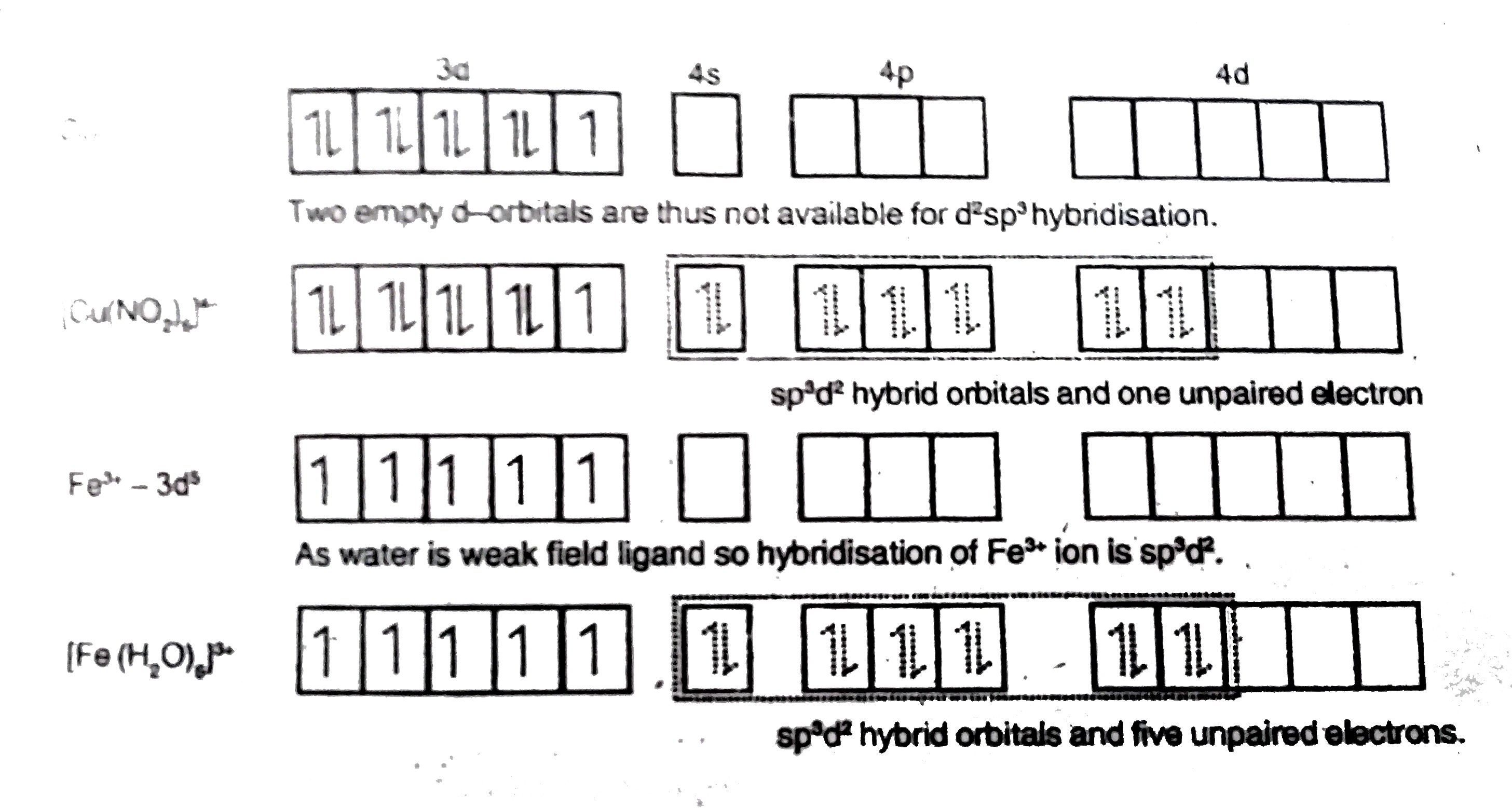Which of the following statements is (are) true for [Cu(NO2)5]4− and [Fe(H2O)6]3+ ?
Both are outer orbital complexes
Both are inner orbital complexes with magnetic moment equal to 1.73 B.M.
The former complex is paramagnetic with one unpaired electron while later one is paramagnetic with five unpaired electrons.
The former is outer orbital complex and later is inner orbital complexes respectively
The correct Answer is:A,C,D
Topper's Solved these Questions
Similar Questions
Knowledge Check
Which of the following statement is incorrect about [Fe(H2O)5NO]SO4-
AIt gives brown ring test for nitratesBOxidation state of Fe is +1CIt exhibits geometrical isomerismDCharge on NO is +1Which of the following option is correct for [Fe(H2O)6]2+ and [Co(H2O)6]3+ ?
Aboth have same magnetic momentBboth are high spin complexC△0>P for bothDSplitting gap is different in bothWhich of the following option is correct for [Fe(H2O)6]2+ and [Co(H2O)6]3+ ?
Aboth have same magnetic momentBboth are high spin complexCΔ0>P for bothDSplitting gap is different in both
Which of the following statements is/are true for the complexes, [Fe(H2O)6]2+,[Fe(CN)6]4−,[Fe(C2O4)3]2− and [Fe(CO)5] ?
View SolutionWhich of the following statements is/are true for the complexes, [Fe(H2O)6]2+,[Fe(CN)6]4−,[Fe(C2O4)3]2− and [Fe(CO)5] ?
View SolutionWhich of the following statement is not true for the reaction given below:
[Cu(H2O)4]2++4NH4⇔[Cu(NH3)4]2++4H2O
View SolutionWhich of the following statement is not true for the reaction given below:
[Cu(H2O)4]2++4NH4⇔[Cu(NH3)4]2++4H2O
View SolutionWhich of the following statements is true for a cell, Pt∣∣H2(g)∣∣H+∣∣∣Cu2+∣∣Cu ?
View Solution

